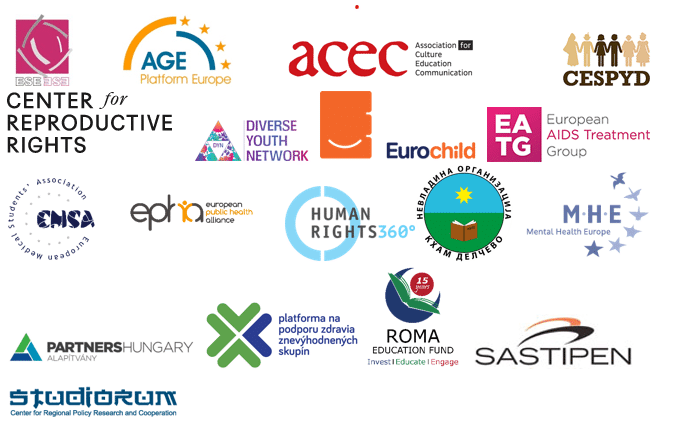
The COVID-19 pandemic has demonstrated the human and financial costs of poor investment in health prevention services among vulnerable groups in Europe. Disproportionally affected by unequal access to health and preventive services and poor housing, living and working conditions, their poor health status has led to greater exposure to the pandemic’s health and economic effects.
The European Public Health Alliance, together with a number of European and national organisations and individuals are calling on the European institutions and national governments to implement the following recommendations:
- Public health investment for vulnerable groups must be a top political priority, including funding specifically allocated to health prevention and protection, both physical and mental, and common agreement to reduce health inequalities.
- National authorities must recognize and address the impact of the crisis on vulnerable groups and ensure that “a holistic concept of health and well-being, including freedom from racism and xenophobia” guide national actions aiming to tackle the public health crisis and limit its socio-economic effects, The current circumstances cannot justify any actions that contribute to racism and xenophobia, stigmatising entire communities, and undermining the right to health without discrimination.
- National authorities must undertake immediate targeted actions in the field of physical and mental health, food security, housing and accommodation and guarantee the access to clean water and hygiene products, accessible information, free access to testing and treatment for patients affected by COVID-19 to ensure the protection of disadvantaged communities and vulnerable socio-economic groups during the pandemic.
- Ensure that children from vulnerable groups should not be left with lower educational opportunities during the pandemic that intensify inequalities they already face in society.
- Allocate and earmark specific funds at European and national level to target the needs of women and girls from vulnerable groups, to take account of their particular needs, especially to tackle gender-based violence and intersecting forms of inequality and discrimination faced in access to healthcare, employment, education and housing that may intensify during the pandemic.
In developing their response to the longer-terms effects of the pandemic, we hope that European and national policy makers will join forces and provide a human-rights centred, gender-sensitive sustainable solution to the rapidly growing levels of health inequalities. This must also involves representatives of disadvantaged communities themselves, civil society organizations, and other actors in key policy areas such as health, housing, education, employment and anti-discrimination to better identify public health priorities and maximize the social and economic outcomes, including gender equality.
If the current crisis is an opportunity to reset how we tackle health inequalities in the future, we must ensure that European values, such as human rights principles and democracy, are the basis for further actions to prevent further growth of poverty and inequalities between and within countries and ensure Europe’s commitment to the UN Sustainable Development Goals
